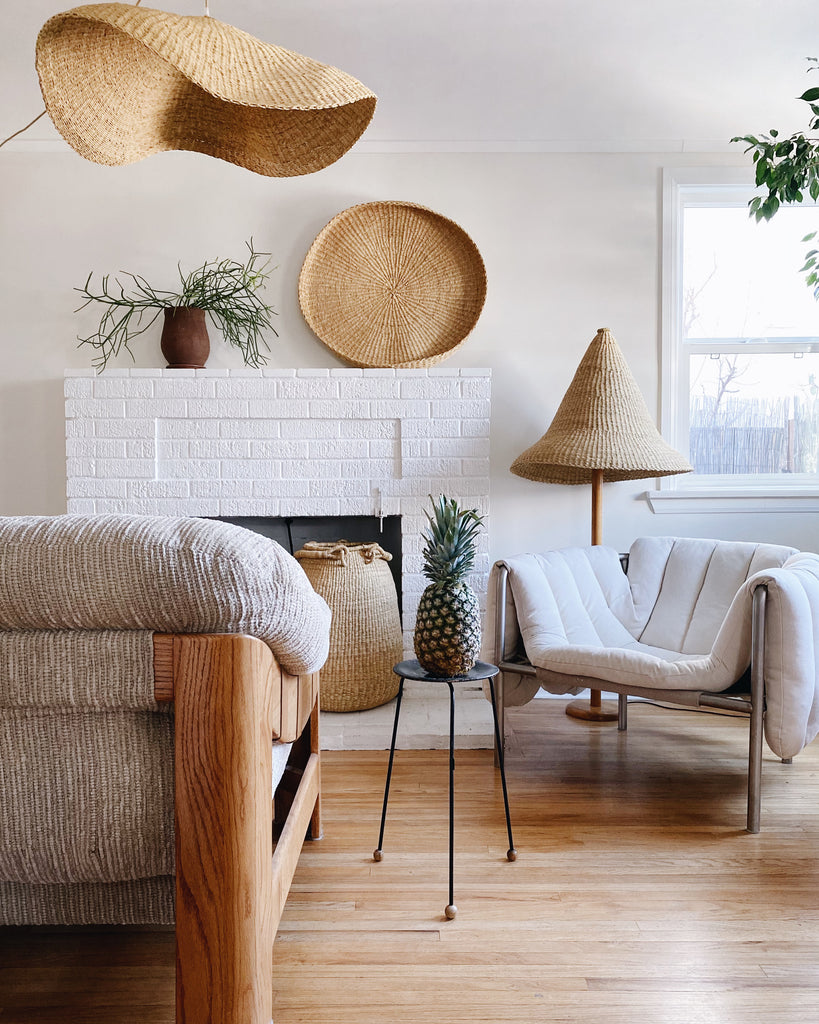Q + A with Twenty One Tonnes

Helmed by childhood friends Chessa Osburn and Mary Jane Bolton, Twenty One Tonnes celebrates traditional craft. Supporting tradition and sustainability by working directly with artist the duo creates one of a kind, hand crafted forms, that are both surprising and functional, and perfectly in line with the TPE ethos. Learn more about the pair below.
How did you both come to meet and form Twenty One Tonnes ?
Our mothers were friends so we met as children. Chessa started Twenty One Tonnes as a small trade project working with just a few artisans in Morocco. I joined the business a few years later after we had both had children.
What are your respective backgrounds in ?
Chessa has a background in international peace studies and social justice and I worked in visual effects.
Where are you both currently ? As you live in different cities, how do you balance working in two places?
Chessa lives in Vancouver, where we both grew up. I live in Los Angeles now. It’s been such a benefit to our business to have studios in Canada and the US. Though we work remotely, we are in constant contact with each other and the artisans that we work with.
The forms of your baskets are very unique in a very subtle way. I tend to think that you are considering these forms for quite some time, can you tell us a little bit about the process of creating them and what informs these shapes ?
Our design process is a conversation between us and our partners in Ghana. We usually share an idea with the weavers which they try and add their own spin to, and through that process of collaboration we often end up with something more interesting than our original idea.
Do you think about the function these baskets will perform first ? Does function follow form, or form follow function for you ?
It’s a bit of both! It depends on the item, but for the olive baskets in your shop I would say form follows function.
Your baskets are all made in Ghana, by The Sirigu Women's Organization for Pottery and Art. Can you tell us a little bit about this organization and how you came to work with them ?
SWOPA is a non-profit organization in Northern Ghana that provides skill training to local women, offering opportunities to develop and express their individual and cultural identities. We reached out to them years ago and it has developed into a wonderful partnership.
Off the top of your head, how many baskets do you think you each have in your respective homes ?
It’s an ever rotating gallery of baskets - both Chessa and I collect basketry and Chessa also weaves her own as well.
Most unique use you have seen for one of your baskets ?
We receive a lot of images of customers’ children wearing our baskets on their heads!

Follow
Facebook Instagram Pinterest